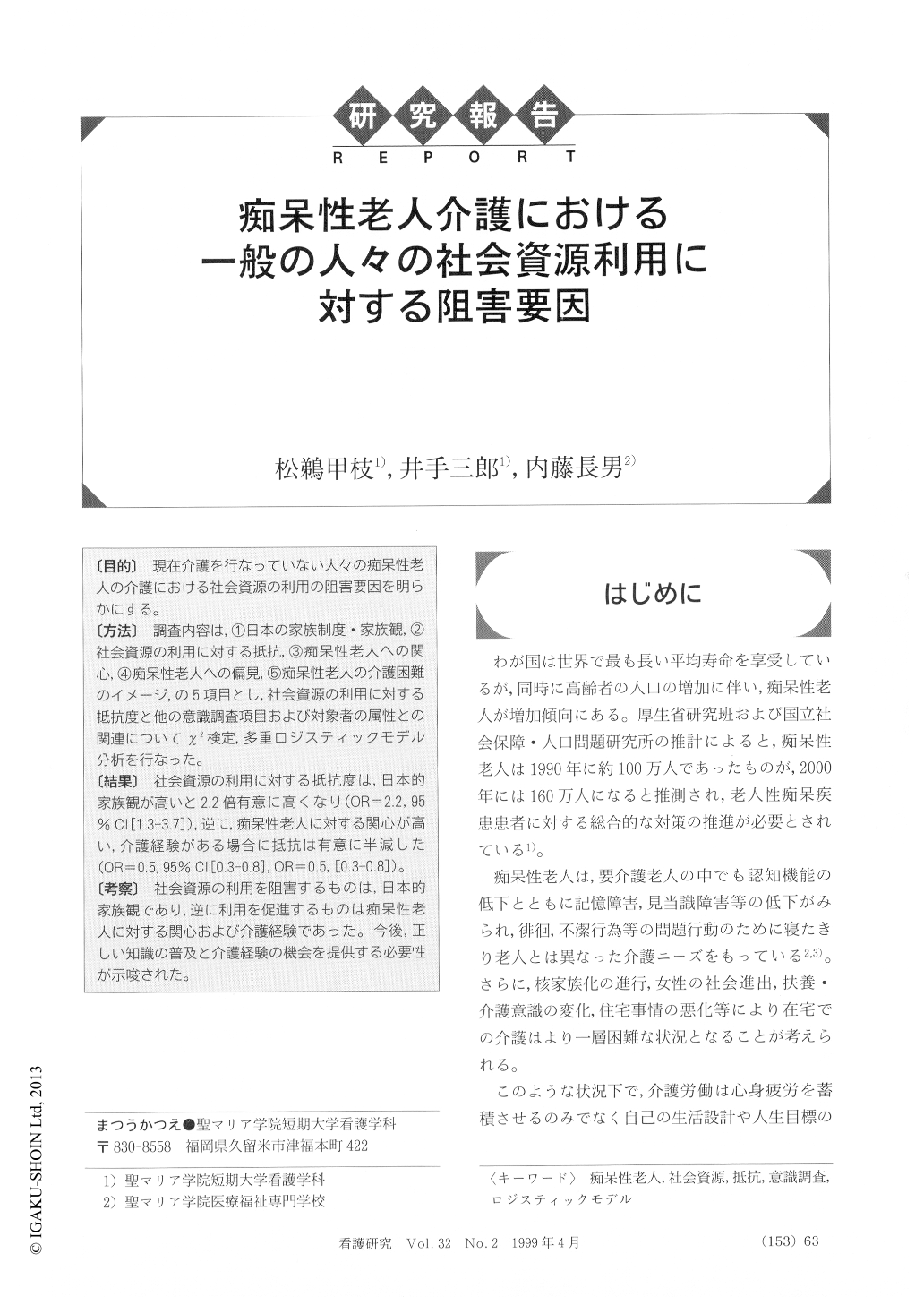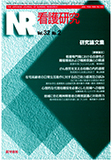Japanese
English
- 有料閲覧
- Abstract 文献概要
- 1ページ目 Look Inside
〔目的〕現在介護を行なっていない人々の痴呆性老人の介護における社会資源の利用の阻害要因を明らかにする。
〔方法〕調査内容は,①日本の家族制度・家族観,②社会資源の利用に対する抵抗,③痴呆性老人への関心,④痴呆性老人への偏見,⑤痴呆性老人の介護困難のイメージ,の5項目とし,社会資源の利用に対する抵抗度と他の意識調査項目および対象者の属性との関連についてχ2検定,多重ロジスティックモデル分析を行なった。
〔結果〕社会資源の利用に対する抵抗度は,日本的家族観が高いと2.2倍有意に高くなり(OR=2.2,95% Cl[1.3-3.7]),逆に,痴呆性老人に対する関心が高い,介護経験がある場合に抵抗は有意に半減した(OR=0.5,95% Cl[0.3-0.8],OR=0.5[0.3-0.8])。
〔考察〕社会資源の利馬を阻害するものは,日本的家族観であり,逆に利用を促進するものは痴呆性老人に対する関心および介護経験であった。今後,正しい知識の普及と介護経験の機会を提供する必要性が示唆された。
This paper discusses civil consciousness regarding difficulties in utilizing social services for senile elderly. We sent self-administered questionnaires to 300 workers, between 20 and 70 years old (mean age 47.3, SD±7.5).; 92% replied (275 people). We analyzed 257 replies. We investigated the following issues:
1. Patriarchal and conservative view about family concept.
2. Family resistance to social resources.
3. Interest in the senile elderly.
4. Prejudice toward senile elderly.
5. Difficulty in caring for elderly.
We used χ2 analysis method and a multiple logistic regression model analysis to examine the magnitude of resistance in utilizing social resources in relation to significant facts found in the χ2 method results.
〈Results〉 It is obvious that if people have strongly conservative and patriarchal views about family concept, their resistance toward social services is 2.2 times stronger than the people who exhibit moderate views (Odds Ratio, OR = 2.2, 95% Confidence Interval, CI[1.3-3.71]). If people express higher interest toward senile elderly, their resistance is half of those who have low interest (OR = 0.5, 95% CI[0.3-0.8]). If people some experience caring for elder lies, their resistance level is half of those who are inexperienced (OR = 0.5, 95% CI[0.3-0.8]).
Conservative, patriarchal Japanese views toward family unit are obstructive factors in resistance to social services. This study also suggests that people who have knowledge and experience with senile elderly tend to better utilize the services. Thus, it is important to educate young people on these matters and give them opportunities to care for the elder lies.

Copyright © 1999, Igaku-Shoin Ltd. All rights reserved.


